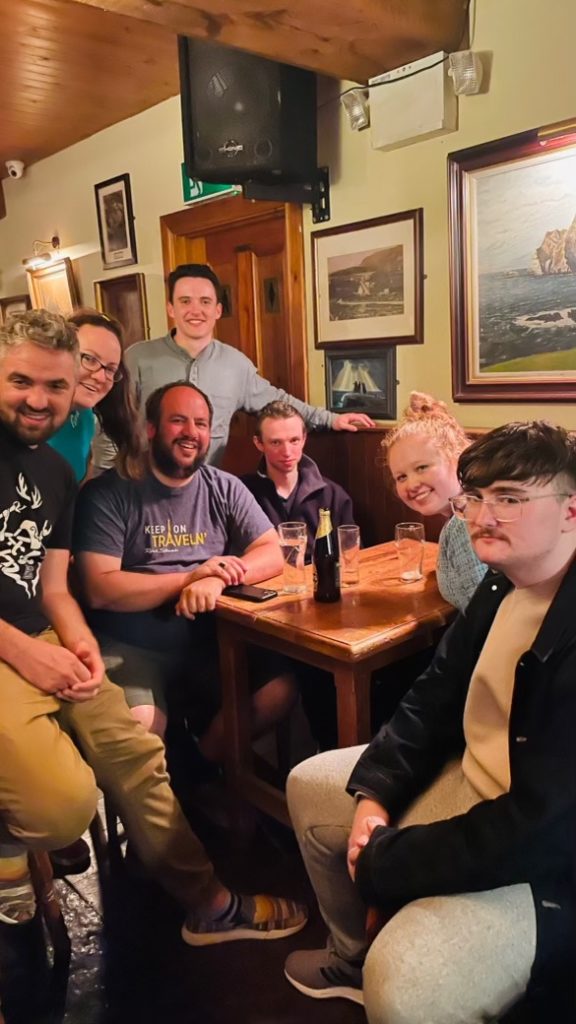Learning about what Irish people think about the sizable number of Americans who come to learn Irish has been eye-opening, as it has taught me a great deal about how the Irish see the language themselves. Because Irish is a minority language facing serious challenges in many traditionally Gaeltacht communities (economic stagnation, emigration, patchy intergenerational transmission), it inevitably evokes diverse feelings from people of varying perspectives. So many people have worked incredibly hard to achieve protection for the Irish language on the national level, whether it being made a mandatory subject in schools, or the illegality of monolingual English public signs. Many others have devoted themselves to preserving the Irish language in traditionally Irish speaking communities, as well as introducing it to English speaking areas. Despite this incredible push, however, Irish still remains on the periphery of most Irish people’s lives as it is simply not the language of discourse in its own country.
This unfortunate lack of visibility has led many people to become indifferent to its plight as it has very little effect on their daily lives. Furthermore, poor Irish language education in the school system has led many students to discard it as pointless and useless, or even grow resentful because of its compulsory character. With this backdrop in mind, it is not hard to see why attitudes towards Americans coming in to learn Irish ranges from overjoyed, to confused, to negative. Many of the folks who work to preserve the language and pass it onto the next generation welcome the large number of Americans that have taken to learning the language for a variety of reasons. Many Americans they see come through have an interest based on heritage or a connection to the country, some are language lovers, and still others academics. Whatever the reason, many Irish speakers who may have been a bit confused at first, are joyful to see Americans tap into a sense of identity with the language that so many Irish school students never have.
Other Irish people, both Irish speakers and English speakers, are still confused by Americans’ interest. I have met multiple school teachers who were mandatorily in the Gaeltacht to get certificates so they could retain their teaching qualifications, who simply could not understand why anybody outside of Ireland would ever have an interest in a language spoken by a small minority of speakers with no perceived promise of economic or social gain. After all, many of their own students couldn’t care less about the language, so why on earth would Americans?
Some, though seemingly a shrinking number, see Americans coming to learn Irish as dumb and a waste of time. I actually overheard a conversation wherein a man getting his PHD in Celtic Studies from Harvard was asked by a young Irish fellow “why are you wasting your life away?” Once again the lack of necessity inherent in minority languages, likely combined with some embarrassment at his own inability to speak the native language of his country, led him to have such a negative view of Americans taking an interest in Irish.
These latter two categories of people (characterized by indifference or even hostility) would make me despair about being an American trying to access such an ancient and rich language, but fortunately those who are overjoyed to see Americans and other foreigners learning Irish outnumber the others in Gaeltacht communities and seem increasingly to be winning the battle to create a positive view of Irish.
